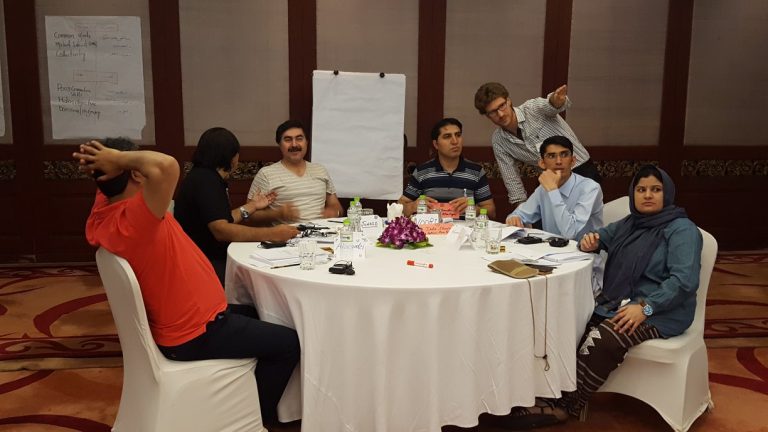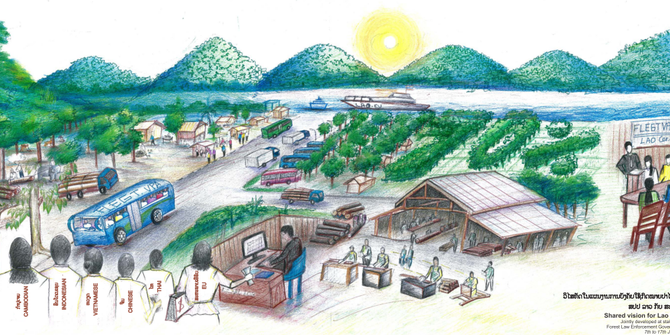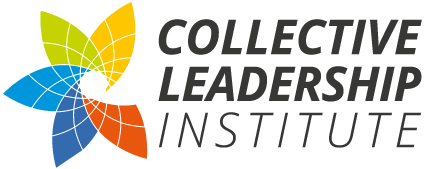CLI successfully concluded a two-day workshop aimed at fostering Multi-Actor Partnerships (MAPs) in collaboration with Germanwatch e.V. and key civil society organizations in Pakistan. Led by Mai ElAshmawy and Guillem Vallbona, the workshop focused on applying the Dialogic Change Model (DCM) to enhance collaboration and strengthen climate resilience efforts

Project time: 2024
Sector(s): civil society
Main SDG: 13 Climate Action
Stakeholders: Germanwatch project managers and their NGO project partners in Pakistan
Outcome: Participants developed a comprehensive understanding of the key principles and prerequisites for successful MSPs, learned how to create collaborative processes with tangible outcomes using the DCM framework, and explored ways to address differing perspectives and overcome challenges in establishing and sustaining MSPs. This training supported Germanwatch and Pakistan’s dynamic civil society organizations, empowering them to co-create effective solutions for climate adaptation and resilience.
CLI Project Managers: Mai ElAshmawy, Guillem Vallbona

The Regional Climate Change Adaptation Strategy in Central Asia (RCCAS) provides a strong basis for cooperation within and among the Central Asia countries of Kyrgyzstan, Kazakhstan, Tajikistan, Turkmenistan, and Uzbekistan. The strategy is intended to lead to the collective implementation of concrete adaptation measures at national and regional levels. In order to support this process, develop recommendations for implementation, and involve as many relevant stakeholders as possible, CLI conducted a participatory consultation mission among key actors in Central Asia.
Project time: 2024
Sector(s): public sector, civil society, private sector
Main SDG: 13 Climate Action
Stakeholders: >200 civil society-, academia-, public sector- (Regional Working Group members), development cooperation partner-, and private sector representatives
Outcome: CLI conducted five Country Dialogues: in Ashgabat, Tashkent, Dushanbe, Astana, and Bishkek. Participants engaged in open and constructive discussions on key questions for collectively implementing the Regional Climate Change Adaptation Strategy, during a Central Asia Climate Change Conference a formal meeting of the Regional Working Group took place, the consultation process was continued with an online Development Partner Consultation to share results of the mission and discuss ways to help further align, coordinate, and jointly resource climate action in Central Asia.
CLI Project Managers: Dominic Stucker, Cholpon Aitakhunova

The Collective Leadership Institute began working with the Shurokkha project in 2020 and then deeper in 2021. The stakeholders, including the Government of Bangladesh, Workers Associations, and Factory Owners Associations have formed a tripartite Steering Committee and that body will steer the process and be the official decision-making body during the pilot phase with a view towards later scaling up. Over the course of late 2021 and all the way through the end of 2022, CLI offered a series of online training modules to all the stakeholders in the system. In June 2023, CLI facilitated a two-and-a-half-day multi-stakeholder dialogue event outside of Dhaka, Bangladesh.
Project time: 2021 – 2023
Sector(s): private sector, public sector, civil society
Main SDG: 8 Decent Work and Economic Growth
Stakeholders: Government of Bangladesh, Workers Associations, Factory Owners Associations
Outcome: CLI established a positive culture of collaboration among stakeholders and helped to agree on a common vision that all were able to actually draw, and it advanced a draft of a vital communications document. These stakeholders will remain in the collaboration ecosystem with the expectation of further contributing to improving the sector, protecting its workers and their families from the worst economic effects of work-related injury and death, and contributing to the positive and sustainable development of Bangladesh. The pilot system for the EIS has already settled its first four cases and with the current collaboration, including efforts to increase education and knowledge among workers and their families about the EIS benefits, the project expects there to be many more claims and a better future for vulnerable factory workers in Bangladesh.
CLI Project Managers: Douglas F. Williamson, Lulekwa Gqiba

CLI co-organized interactive online workshops with the Asian Development Bank’s (ADB’s) Fragile and Conflict-Affected Situations (FCAS) Team on “Effective Stakeholder Engagement in FCAS.” 52 ADB specialists working on development initiatives in 19 Asian and Pacific countries joined for the online workshops so far. CLI also supported ADB in launching the FCAS Peer Mentoring Network by producing an interactive knowledge product intended to further strengthen collective leadership capacity among the 250+ member network.
Project time: 2020-2022
Sector(s): public sector
Main SDG: 16 Peace, Justice and Strong Institutions
Stakeholders: 52 ADB specialists of the Fragile and Conflict-Affected Situations (FCAS) team, 250+ network members
Outcome: practical application of CLI’s Dialogic Change Model and Collective Leadership Compass through case work; interactive exchange between projects and across departments; enhanced development effectiveness; contribution to ADB 2030 Strategy.
CLI Project Managers: Dominic Stucker, Maryana Zaviyska


The CEGGA Program (Citizen Engagement for Good Governance, Accountability and the Rule of Law) aims to contribute to increased citizen engagement in Laos’ national development process through the promotion of good governance, the rule of law, and human rights. The Collective Leadership Institute and GIZ organize workshops and engagement missions aimed at further strengthening collaboration capacity among key Lao public sector actors so that they can better coordinate and implement national development policies.
Project time: 2019 – 2022
Sector(s): public sector, civil society
Main SDG: 16 Peace, Justice and Strong Institutions
Stakeholders: Key representatives from the Lao Ministry of Home Affairs, the National Assembly, the Ministry of Justice, the Ministry of Foreign Affairs
Outcome: participants learned and applied concepts for multi-actor collaboration for inclusive national development, strengthened trust, developed a shared understanding of their “Collaboration Ecosystem for Inclusive National Development in Laos,” and elaborated on their respective roles. This reinforced the joint commitment and contribution to implementation of the CEGGA Program.
CLI Project Managers: Dominic Stucker, Alina Gruen


In February 2020, CLI partnered with Germany’s Global Nature Fund (GNF) and NaturLand, India’s Nature, Environment, and Wildlife Society (NEWS), and the Bangladesh Environment and Development Society (BEDS) to launch a transboundary, multi-stakeholder partnership in the Sundarbans for healthy mangroves, thriving livelihoods and coastal communities, and robust aquaculture value chains.
Project time: 2020
Sector(s): civil society, public sector, private sector
Main SDG: 14 Life below Water
Stakeholders: representatives from the public sector (e.g. forestry, environment, and fisheries departments), private sector aquaculture companies, NGOs, and research institutes
Outcome: shared understanding of the context; creating inspiring, shared vision paintings; and building commitment for taking next partnership steps together. Multi-stakeholder working groups on Healthy Mangroves, Thriving Livelihoods and Communities, and Robust Aquaculture Value Chains emerged from both workshops.
CLI Project Manager: Dominic Stucker

CLI successfully conducted a tailored training for the “Multi-Stakeholder Partnership (MSP) for the Partnership for Organic Agriculture (POAg) Project in Mongolia”. CLI’s partners on this project are the Adventist Development and Relief Agency (ADRA) Germany and ADRA Mongolia. The training included participation from the core container and a handpicked group of stakeholders from cooperatives and civil society, as well as from the public and private sector. The initiative envisages an improved employment situation and economic well-being of smallholder farmers through multi-stakeholder partnerships in the Selenge Province, Mongolia.
Project time: 2019, 2023
Sector(s): civil society, public sector, private sector
Main SDG: 8 Decent Work and Economic Growth
Stakeholders: 18 civil society, public sector, and private sector representatives from the national level and Selenge province
Outcome: Mutual trust and understanding has been established among key stakeholders (core container), concrete change initiatives have been designed, participants share a common, co-created vision.
CLI Project Managers: Dominic Stucker, Sabine Heckmann

CLI was invited to the the 10th anniversary Central Asian Leadership Programme on Environment for Sustainable Development (CALP) in Almaty, Kazakhstan. Participants were young professionals from Central Asia working in the public sector, civil society, private sector, and media who share a commitment to collaborating across borders for the benefit of environment and society. In several sessions during this 4 day event, we introduced the Collective Leadership Compass and Dialogic Change Model and used cases to show how these methodologies can be applied in practice. The participants analysed the CALP Network as an emerging Collaboration Ecosystem for the environment in Central Asia and proposed next steps in the process.
Project time: 2019
Sector(s): public sector, civil society, private sector
Main SDG: 15 Life on Land
Stakeholders: 31 young professionals from Afghanistan, Kazakhstan, Kyrgyzstan, Tajikistan, Turkmenistan, and Uzbekistan
Outcome: Participants learnt about the Collective Leadership Compass and the Dialogic Change Model, how they can apply these methodologies in their projects on transboundary environmental initiatives in Central Asia. Participants also analysed the CALP network with the Collective Leadership Compass and proposed next steps to further develop it.
CLI Project Manager: Dominic Stucker

In order to implement Georgia’s national commitments for the implementation of the Paris Agreement under the United Nations Framework Convention on Climate Change multi-stakeholder collaboration is essential.
Deutsche Gesellschaft für Internationale Zusammenarbeit (GIZ) GmbH has been supporting several processes, including “processes, methodologies and instruments for long-term decarbonization planning and the integration into national targets to fight climate change while also considering economic transformation targets and enhance the capacities of public decision-makers and institutions for the application of necessary integrated and inter-institutional planning processes.”
In this context, the Collective Leadership Institute was asked by GIZ to facilitate a tailored three-day stakeholder engagement workshop for 23 people from the national and provincial levels in September 2018 in Borjomi, in close collaboration with the Climate Change Unit (CCU) in Georgia and the New Climate Institute (NCI) in Germany.
Project time: 2018
Sector(s): public sector
Main SDG: 13 Climate Action
Stakeholders: 23 persons from the Deutsche Gesellschaft für Internationale Zusammenarbeit (GIZ) GmbH, Climate Change Unit (CCU) in Georgia and the New Climate Institute (NCI)
Outcome: 23 people from the national and provincial levels participated and exchanged information and experience to jointly understand current challenges and opportunities for climate change action in Georgia. The participants started to jointly define priorities and inter-sectoral and inter-disciplinary engagement structures for the development of a Climate Action Plan roadmap for the next months
CLI Project Managers: Kristiane Schäfer, Sabine Heckmann

The Multi-Stakeholder Partnership for Sustainable Tuna Fisheries, Livelihoods, and Communities in Mindoro Straits and Lagonoy Gulf, Philippines was initiated by the World Wide Fund for Nature (WWF) and the Tambuyog Development Center. This MSP promotes equitable and sustainable tuna supply chains and sustainable management of yellowfin tuna in Philippine waters, enhances the socio-economic situation of small-scale handline tuna fishers and secures their livelihoods in the long-term. This initiative is implemented in a partnership with several actors along the tuna supply chain. At the outset of this initiative in 2018, CLI travelled to Manila and trained 28 persons – the core container and a handpicked group of stakeholders from the public and private sectors, NGOs, and representatives of the fisher communities – in the approach of multi-stakeholder collaboration and MSP.
Project time: 2018
Sector(s): public sector, private sector, civil society
Main SDG: 14 Life below Water
Stakeholders: 28 persons from the public and private sectors, NGOs, and representatives of the fisher communities
Outcome: The stakeholders were trained in the Dialogic Change Model, built a process for a successful multi-stakeholder-partnership, and work towards common goals.
CLI Project Managers: Dominic Stucker, Sabine Heckmann

The 2,430km border between Afghanistan and Pakistan is mountainous, porous, and fraught with conflict. It is characterized by the illegal trafficking of goods, drugs, and persons. Dialogue and collaboration – on topics such as customs procedures, counter narcotics operations, and facilitation of trade – are nearly non-existent, with relevant actors unwilling to set foot in their neighbour’s country. Suspicions are high and trust is low.
In this context, the Collective Leadership Institute (CLI) built trust with a workshop series among stakeholders of an UNODC programme to stop illegal trafficking of goods, drugs, and persons.
Project time: 2018
Sector(s): public sector
Main SDG: 16 Peace, Justice and Strong Institutions
Stakeholders: 40 public sector participants representing police, customs, military, and Ministries from Afghanistan and Pakistan.
Outcome: Trust among cross-border teams was built, concrete stakeholder collaboration initiatives were developed on: sharing of customs data, mitigating smuggling of narcotics, and promoting railway trade and travel.
CLI Project Managers: Dominic Stucker, Sabine Heckmann, Lulekwa Gqiba, Elisabeth Kuehn

Access to clean water is essential for improving the health of children and families, and contributing to a better quality of life in rural Cambodia. Through the donation of the Still Point Foundation in the United States, it was possible to train 6 scholars from civil society organisations as well as three of their public sector partners to CLI’s The Art of Stakeholder Collaboration course in Siem Reap. By building stakeholder dialogue and collaboration capacity among the teams from WaterAid, WaterShed, and ESC Borda, the overall aim was to enhance their respective projects that improve access to clean water for communities.
Project time: 2017
Sector(s): civil society, public sector
Main SDG: 6 Clean Water and Sanitation
Stakeholders: 6 water management professionals from civil society organisations in Cambodia and their public sector counterparts.
Outcome: Participants understood the stakeholder collaboration process and identified future stakeholder involvement.Participants also learnt how to up-scale their project implementation and developed facilitation and collaboration skills.
CLI Project Managers: Dominic Stucker, Sabine Heckmann

Degradation and fragmentation of forests in Laos has accelerated over the past decade, with negative repercussions for communities, biodiversity, and the climate. The EU’s Forest Law Enforcement, Governance and Trade (FLEGT) Action Plan of 2003 invites major wood-producing countries in the tropics to enter into bilateral Voluntary Partnership Agreements (VPAs) for trade in verifiable, legally produced wood. Such bilateral agreements can help countries like Laos continue to access the international market, while channelling more revenues into state budget and community pockets. For that to happen, the definition of ‘legal timber production’ in Laos must be developed in a participatory and transparent manner involving all forestry stakeholders.
Project time: 2014
Sector(s): public sector, private sector, civil society
Main SDG: 12 Responsible Consumption and Production
Stakeholders: Representatives from three Ministries, the wood processing and furniture industry, civil society and academia.
Outcome: A shared vision was developed and visualised, a network actor map was created, the further process was planned together, collective actions steps were prioritised, a process map was created and the sustainable forestry vision was presented.
CLI Project Manager: Dominic Stucker

The Collective Leadership Institute intensively trained 16 members of the Afghan Urban Water Supply and Sewerage Company (AUWSSC) in working with Stakeholder Dialogues, key concepts for achieving common goals, and Success Factors in Stakeholder Dialogues during three tailor-made courses in New Delhi, India in January 2014. The training supported the ministry’s engagement processes relating to water policy, on drafting a water law, and on preparing to set up regional river authorities in order improve the efficiency in managing the water resources in Afghanistan and deliver clean drinking water to the public.
Project time: 2014
Sector(s): public sector
Main SDG: 6 Clean Water and Sanitation
Stakeholders: Around 2,500 households in Dogh Abad without proper access to drinking water the Afghanistan Urban Water Supply and Sewerage Corporation and their international partners.
Outcome: The project cycle was reviewed, a strong key stakeholder group (core container) was established, scaling-up strategies were developed.
CLI Project Manager: Andrew Aitken

Establishing effective governance structures for cross-cutting issues such as gender equality and women empowerment is inherently complex. The challenge in Georgia is augmented by low public awareness and low political initiative. Using the Stakeholder Dialogues approach, especially Phase 1 of the Dialogic Change Model (DCM) “Exploring and Engaging”, UN Women managed to create a container for change. The success worth celebrating thus far is the appointment of advisory positions for gender equality and women rights by the Georgian Prime Minister.
Project time: 2012-2013
Sector(s): public sector, civil society
Main SDG: 5 Gender Equality
Stakeholders: 20 high level representatives from the Georgian government, UN organisations, international and local NGOs
Outcome: A high level stakeholder event was organized by UN Women Georgia, a ‘container for change’ was created to lobby for gender equality and human rights at all government levels, a new position of an assistant to the Prime Minister dealing exclusively with gender equality and women’s rights issues was established.
CLI Project Manager: Andrew Aitken
